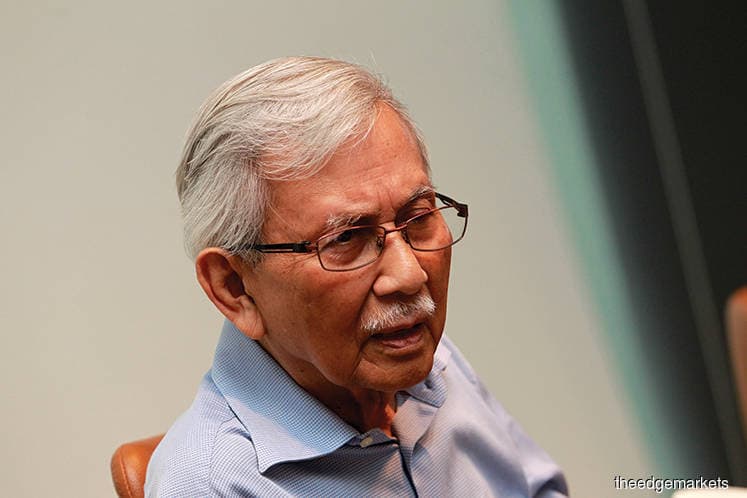
KUALA LUMPUR (Aug 5): The New Economic Policy (NEP), which was first enforced more than 40 years ago, should evolve into a national development policy that is focused on a needs-based approach, as opposed to race-based, says Council of Eminent Persons (CEP) chairman Tun Daim Zainuddin.
The former finance minister pointed out that although the NEP has had its successes, the policy has now been rife with shortcomings and abuses.
Noting that Bumiputera-based policies stemmed from the fact that the Bumiputeras remain among the poorest in Malaysia, Daim went on to admit that the Bumiputera agenda, after being implemented all these years, has not quite achieved its intended target.
"It is time for a new approach, to start afresh and truly change the lives of those amongst us who are not reaping the rewards of national development. The difference is that we must now target those amongst the rakyat who need assistance the most," he said at the International Conference on Emerging Issues in Public Policy at Universiti Malaya’s Institute of Public Policy and Management.
He added: "We can no longer allow Bumiputera interventions to continue to enrich those among us who have benefited from these policies, yet continue to take advantage of loopholes in the policies, to continue enriching themselves at the expense of those who need help.
"We must also acknowledge that although Bumiputeras are indeed disproportionately represented amongst the poor, other races too are deeply affected by poverty and low standards of living."
Daim also alluded that there are segments within the society who have not benefitted and not had their fair share to participate in national growth and development. If the issue is not addressed, he said issues of inequalities with be worse for the country.
"Yet, if we continue to resist the changes that need to be done, we will pay the price. There are still pockets of abject poverty — the Orang Asli is a stark reminder of the indecent wealth disparity in the country; the disparity in modern infrastructure and amenities between regions is like night and day; and the educational opportunities available to the haves and have nots, ensure that such income and standard of living gaps will continue to widen, if something is not done to rectify them," he said.
Daim stressed that unpopular changes proposed by the new government, has caused distress among those who would lose the most, and thus, in order to protect their own selfish interests, he said the parties have resorted to playing the race and religious cards.
"We need to question [as to] why certain quarters are afraid of these changes and more importantly, we need to question how is it that they managed to rally support for their rhetoric and hate campaigns?
"Do we gain anything by teaching the young that they have the right of entitlement over all others, simply because of their race? Is it right to be instilling in students the thinking that all other religions are inferior to yours?" he questioned.
On this, Daim affirmed that the Bumiputeras still stand to benefit the most, if the NEP moves from a race-based approach to one that is focused on needs-based. He said any policy must result in justice for all.
"We have been robbing the poor to further uplift those that don’t deserve the support, and this widening of the education and income gap must come to an end. The fear-mongering is only to encourage and continue this abuse. It is time to stop the “them versus us” rhetoric," he said.
"Policy wise, the B40, irrespective of race, must be given priority. We must ensure that they can sustain their livelihood and continue to contribute to the national economy. As the majority among the B40 group, Bumiputeras will still stand to benefit the most. Those who don’t deserve assistance, will not get it. And this should be the case.
"The new NEP must take this into consideration and approach the Bumiputera dilemma with a fresh perspective, to ensure that all Malaysians can have their fair share of our national prosperity," Daim added.
The original NEP was first introduced by the late second prime minister, Tun Abdul Razak, in 1971 in response to the racial riots of May 13, 1969 which was deemed to have been caused largely by socio-economic imbalances within the Malaysian society. At the time, the NEP was conceived to reduce ethnic inequalities and to eradicate poverty, irrespective of race.